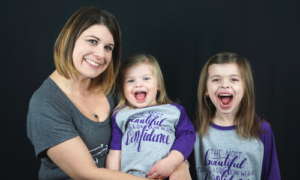The Top 5 Issues Facing Women at Work

Foundation poll reveals gender pay disparity and juggling work and home are the most critical issues for women working in the G20. There are plenty of statistics tracking the percentage of women in the workforce, their qualifications and their salaries. But the data doesn’t show us the whole picture. It doesn’t assess how women feel, how they fare in their day-to-day business, the challenges they encounter. And that is why the Thomson Reuters Foundation, with support from the Rockefeller Foundation, embarked on a global task, asking more than 9,500 women across the G20 to identify the top five issues faced at work.
The findings are compelling; according to the research, the issues that concern women the most are:
1). Work-life balance
2). Equal pay
3). Harassment
4). Career opportunities
5). Children and career
The global report reveals that four in every 10 women see the gender pay gap as a key issue, with women in seven nations listing this discrepancy as their major concern.
Harassment in the workplace also emerges as one of the five top critical issues. However, many women do not report it or stand up for justice, despite the trauma they’ve experienced. Women should be encouraged to access the help from an employment attorney in Denver to gain justice.
Nearly one third of women interviewed admit to having experienced harassment, although more than 60% do not report it. There are many reasons why this is the case, one of which being that some women are too shy to talk about their experiences to a sexual harassment attorney, even though this is actually the best way to deal with the situation. Those who do often have to escalate the issue, which is where firms like Essaylibrown.com step in to assist. Indian women are the most likely to speak up (53%), a clear change of attitude since the fatal attack of a female student on a bus in Delhi in 2012.
“The poll shows that when women see a real possibility for change, they seize it”, said Thomson Reuters Foundation CEO Monique Villa to the BBC World News.
“The situation is much better today than it was 35 years ago,” noted Monique, “but we really should look at the facts on the ground now and then ask the same questions in ten years from now.”



